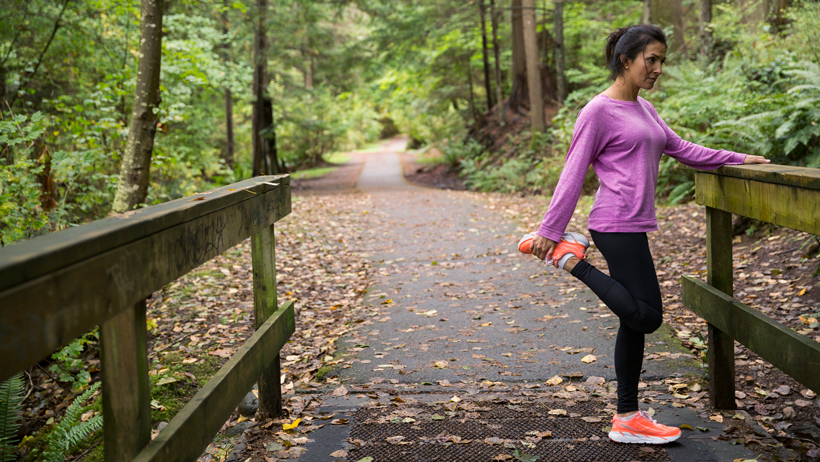Obesity in children is reaching epidemic levels. The combination of video games, tablets, reduced funding for gym programs, and abundance of sugary treats is partially to blame. On the flip side, there have never been so many fitness/sport options for kids. From travel baseball and hockey to personal trainers for 10-year-olds, if you have the means and the time, the options are endless.
It's fantastic for your children to be active, but there has to be a balance between couch kid and super jock. There is a huge uptick in orthopedic issues in children. Teenagers are having Tommy John Surgery, a surgery that use to only be performed on professional baseball players (pitchers). So, how do you raise healthy children?
I will give you my recommendations along with help from Orthopedic Surgeon, Dr. Joshua Alpert. Dr. Alpert works with athletes of all levels at Midwest Bone and Joint Institute. He did a Sports Medicine Fellowship at Harvard where he had the opportunity to work with professional sports teams in Boston. Don't worry, he's still 100 percent a Chicago fan.
My general recommendation for children (11 and under), is to be active for at least 60 minutes each day. I know, too simple, but unless there are specific needs involved, it should be simple. Little bits of movement can come in 20 minute intervals, or even less, throughout the day. In my house, with two boys, our activities are usually wrestling, soccer, catch of some sort, dodge ball, and trips to the park. We take advantage of our great neighbors, and that means the kids play and we get to talk to adults.
I often tell my kids to go play, and they look at me like I'm crazy. "What do we do?" is often the response. Unstructured play forces children to be creative, make up rules, and talk through issues. Since we have a lot of fitness equipment at home, I have my first grader help me put together obstacle courses. You don't need an agility ladder, but we generally use one, a few cones, plyometric boxes (basically big steps), and tennis balls. Instead of barking out orders like I would with clients, I ask him what to do. We take turns and this usually lasts about 10 minutes, 15 if I'm lucky.
If you want your children to become athletes, let them try out all sports. Never say your kid is not an athlete. Some kids are naturally athletic, but the majority of children need practice (and sometimes a push) to get there. I always wanted to play more basketball but I was afraid I wasn't athletic enough. When I got to college a friend of mine gave me some shooting tips, and encouraged me to play more. I never lit up the score board but I learned how to move better and developed more confidence which is half the battle.
If you child is obsessed with baseball and only wants to play baseball, I would encourage them to take a season and try another sport. One of the reasons to play numerous sports is so you do not wear out your joints and ligaments from repetitive motion. If they are opposed to trying a new sport, take the off season to learn how to ice skate, ride a bike, rock climb, and be active with them.
General recommendations with children and exercise from Dr. Alpert:
When is the best age to start lifting weights? There are no age requirements when it comes to weight training. Strength training, weight lifting, intense conditioning, and plyometric exercises can benefit children of all ages, but it must be done progressively and with proper instruction.
Is there a concern that lifting heavy weights can effect growth development? Did back squatting at age 14 affect my height? Children should be taught proper form, start out lifting light bars only, and should always be monitored. Low weight, high repetition exercises are recommended, all while supervised by an adult. Doing squats should not affect a child's height.
What are the most common injuries you see in children? In young athletes, the most common injuries I see are patellar tendonitis (jumper's knee), shin splints (cross country running) and "thrower's shoulder" in youth baseball pitchers.
At what age is ok to specialize in just one sport? Early sport specialization is not a requirement for success at the highest levels of competition and is actually believed to be unhealthy physically and mentally for young athletes. Specializing in one sport increases the risk of overuse injury and burnout from concentrated activity. Early multisport participation will not deter young athletes from long-term competitive athletic success. This is recommended through high school.
The best tip I can offer: set an example. Remember children model themselves after their parents. Walk your kids to parks, go on bike rides, play catch and try to make it fun. Do an easy workout video with them. There's a ton of kids fitness stuff on YouTube. Just make sure the exercise form is right. Younger children often lack the strength for many exercises (like pushups) so progress them slowly.
Stay tuned for part 2, where Ron will share some advice from a nutritionist on raising healthy kids.


.jpg?n=5401)

.jpg)



.jpg)

.jpg)



